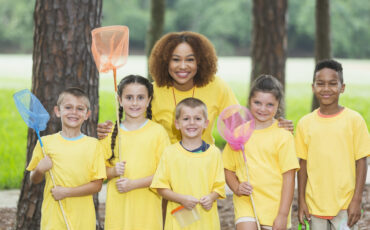If Your Child Suffers a Concussion
Kids whose blow to the head caused them to briefly lose consciousness and be carried off the playing field once returned to practice right away, seemingly fine. Now doctors are more cautious.
“We didn’t use the word concussion unless kids were actually knocked out,” says Dr. David Marshall, medical director of sports medicine at Children’s Healthcare of Atlanta and a physician with Children’s Orthopaedics of Atlanta. But kids can suffer a head injury that causes damage without losing consciousness, and doctors have redefined a concussion as “a transient alteration of cognitive function after a blow to the head,” he says.
If your child falls or has a jolt to the head, “there’s no reason to rush to the hospital,” Dr. Marshall says.
With symptoms such as a mild headache, just make sure the headache doesn’t worsen over the next few hours – a more severe headache could mean a small bleed in the brain. Persistent throwing up, losing consciousness or acting abnormally also are signs to get your child to an emergency room for an evaluation, most likely with a brain scan, he says. (For other common symptoms, see right)
Doctors no longer talk about “mild” or “severe” concussions because any blow to the head has the potential to cause temporary or longer-lasting damage, he says, and recovery will take time.
Children’s Healthcare’s website has lots of information on symptoms to watch for if your child has suffered a concussion and strategies for easing children back into schoolwork and activities after a concussion.
“Overall, the majority of kids with a concussion make a full recovery with no permanent damage,” Dr. Marshall says. After a first concussion, though, kids are more at risk for a second or third concussion, and symptoms could be worse and recovery could take longer, he says. “Then it becomes a family decision whether the child continues in that sport.”
Symptoms of Concussion
Dazed look
Disorientation or confusion
Decreased balance, coordination or reaction time
Memory loss
Nausea and or/vomiting
Slurred speech
Dizziness
Blurry or double vision
Headache
Sleep problems (too much or too little sleep)
Sensitivity to light or sound
For more information, check Children’s Healthcare of Atlanta’s website, at choa.org/concussion, or the CDC’s Heads Up to Parents site, headsupparents.org.
– Amanda Miller Allen








